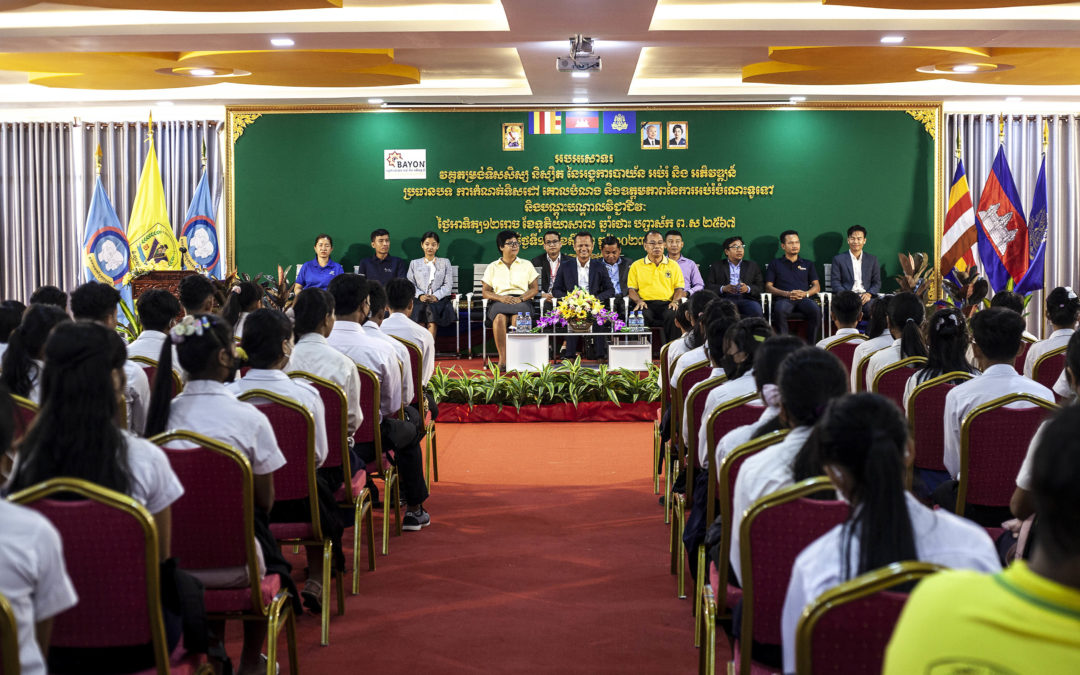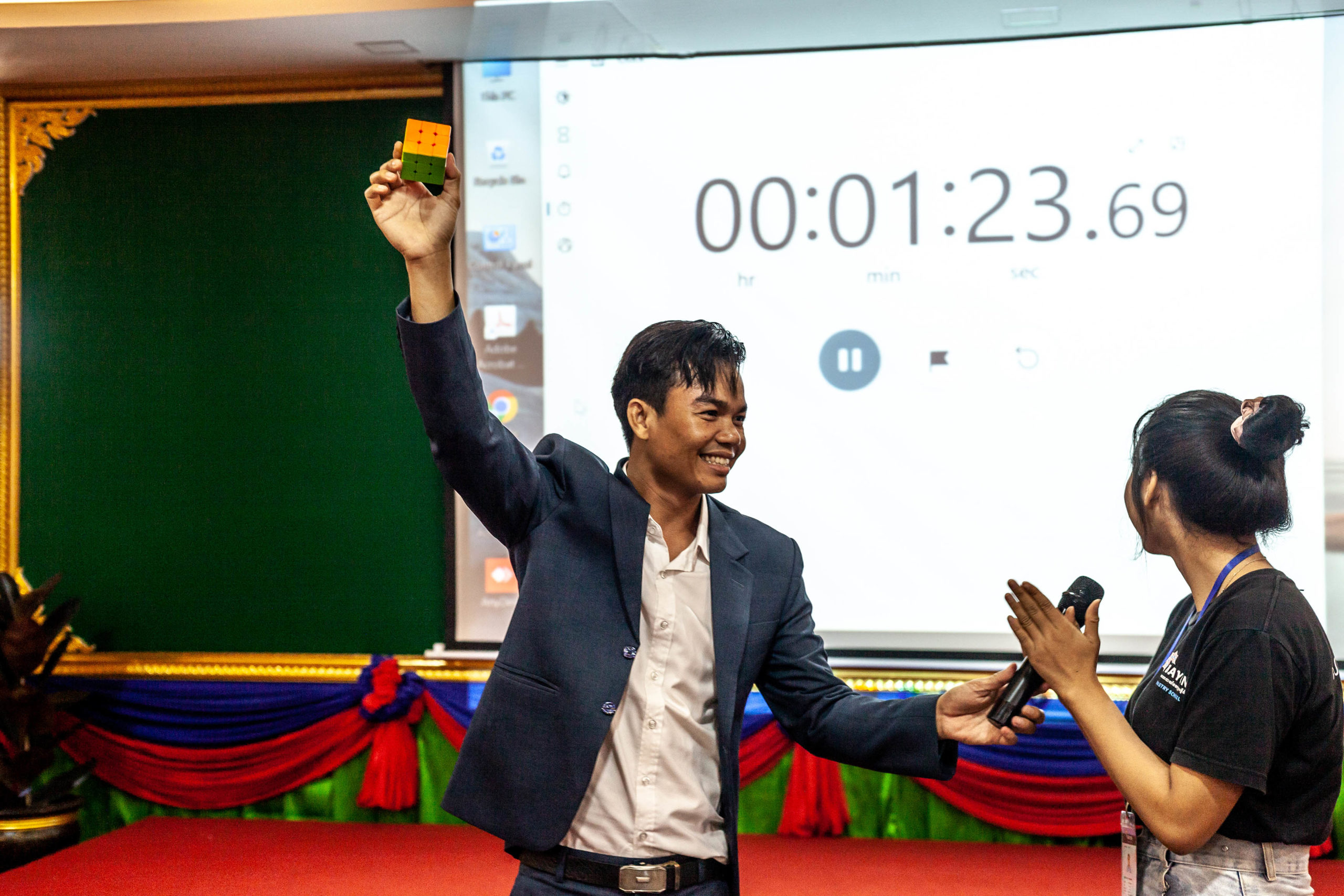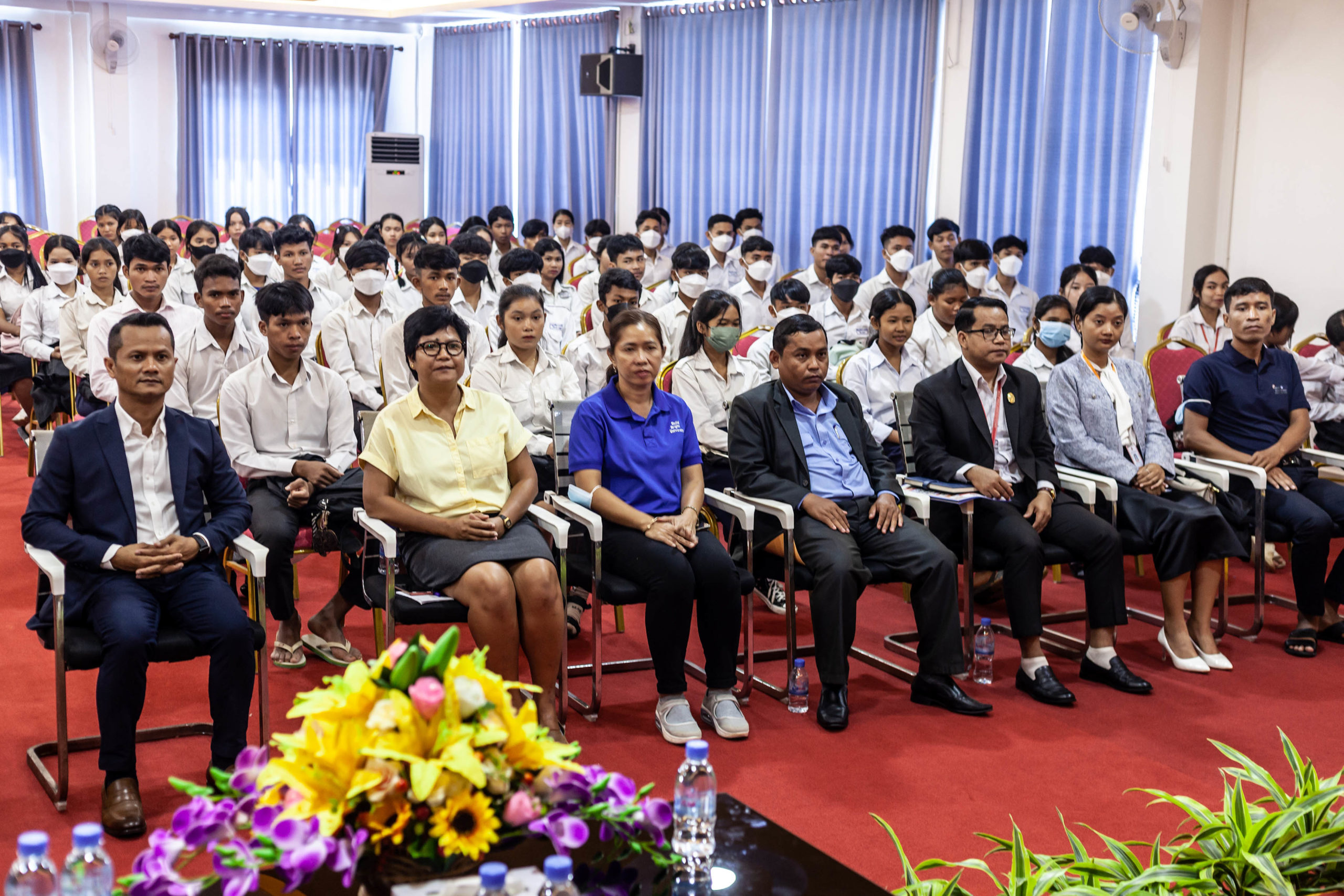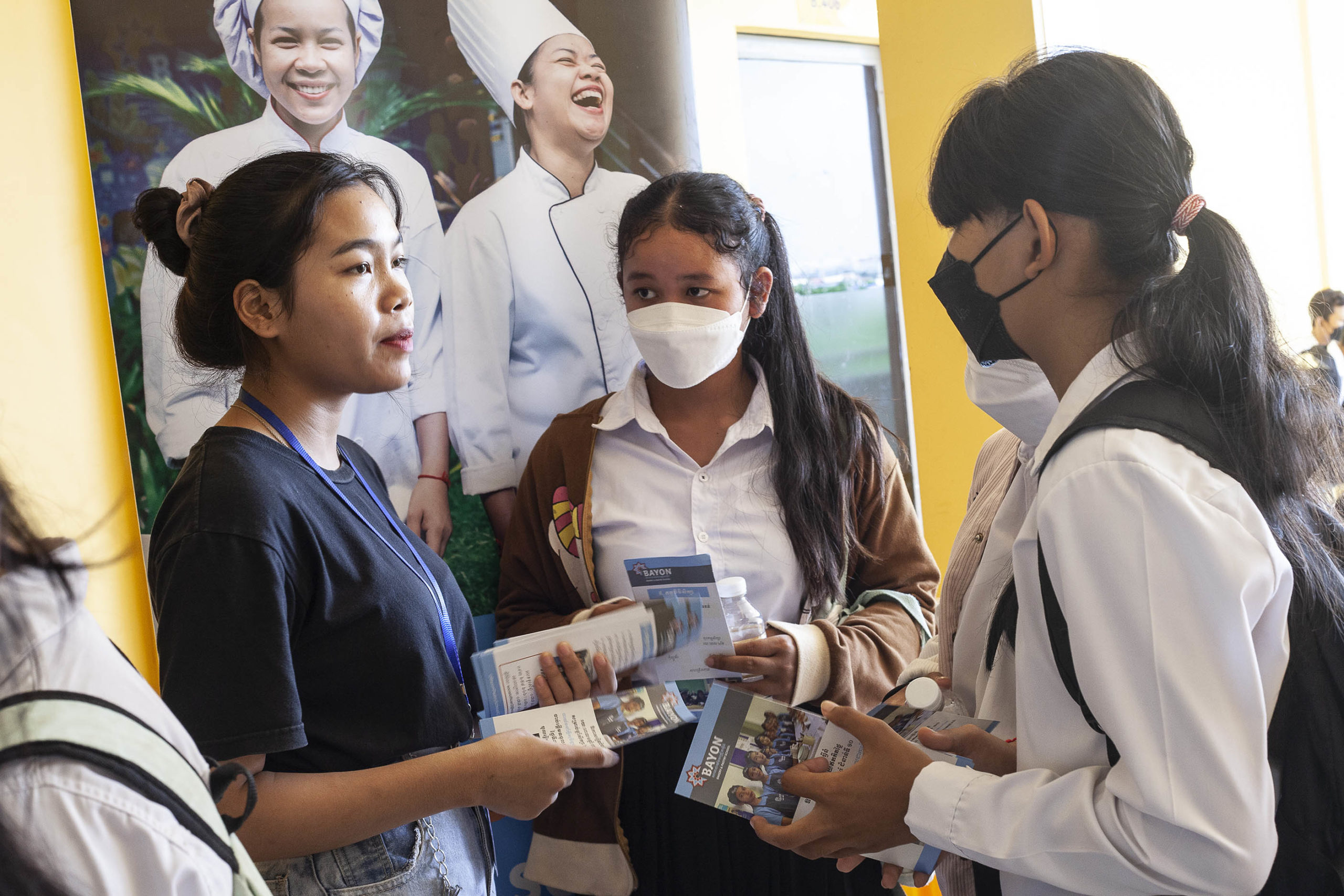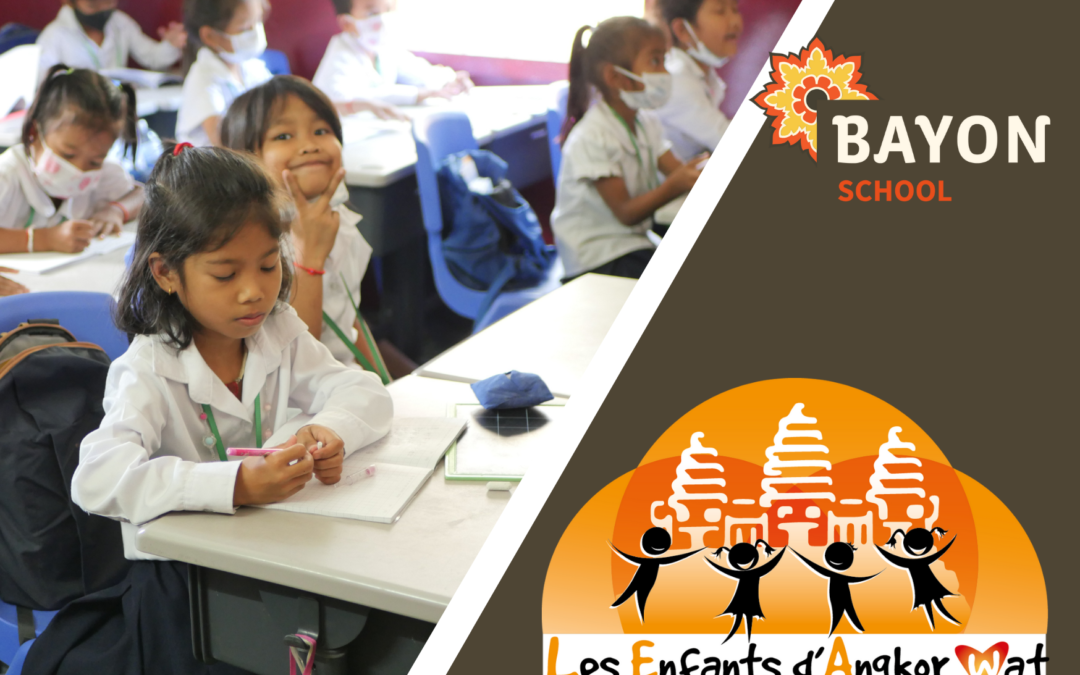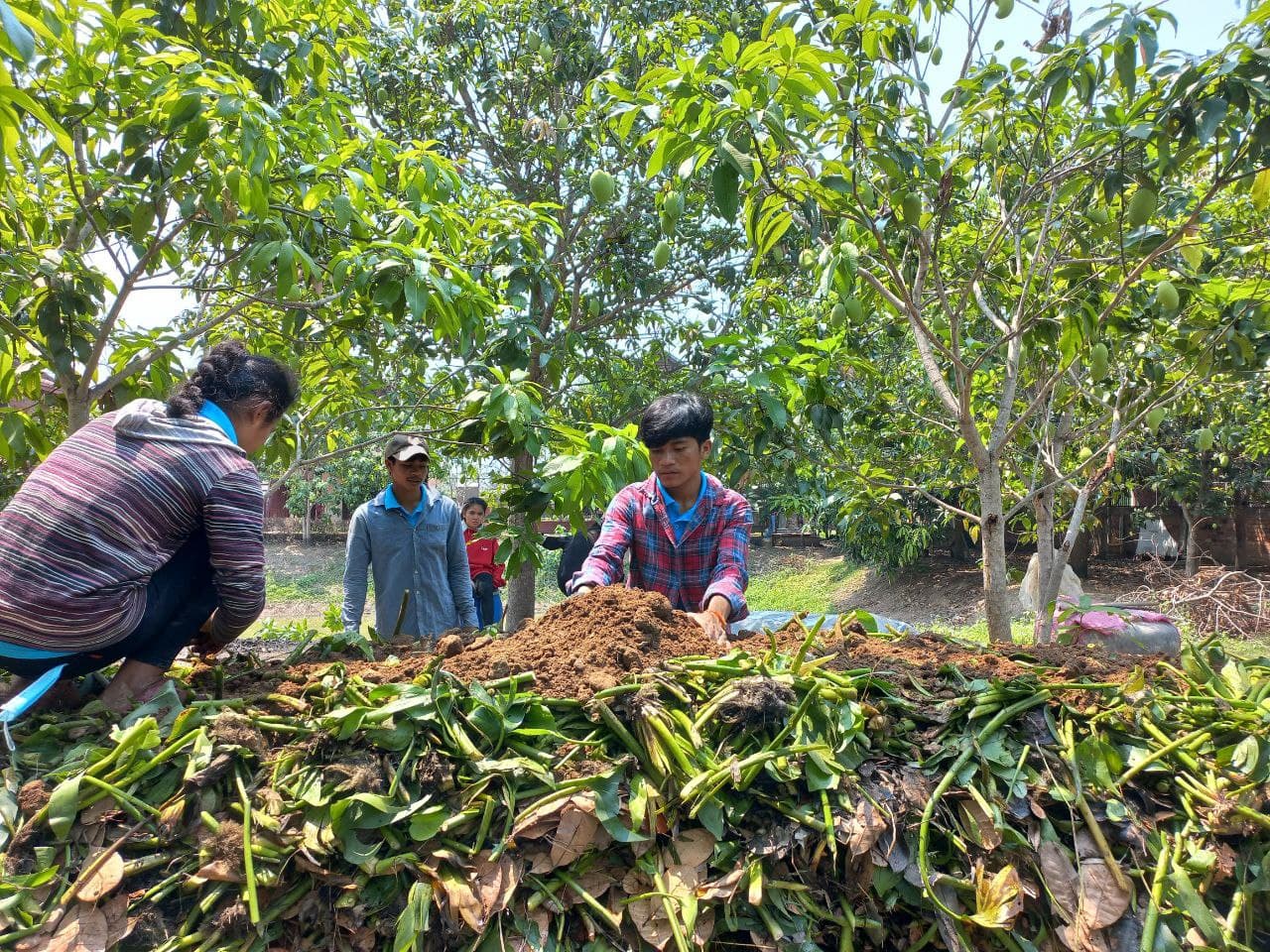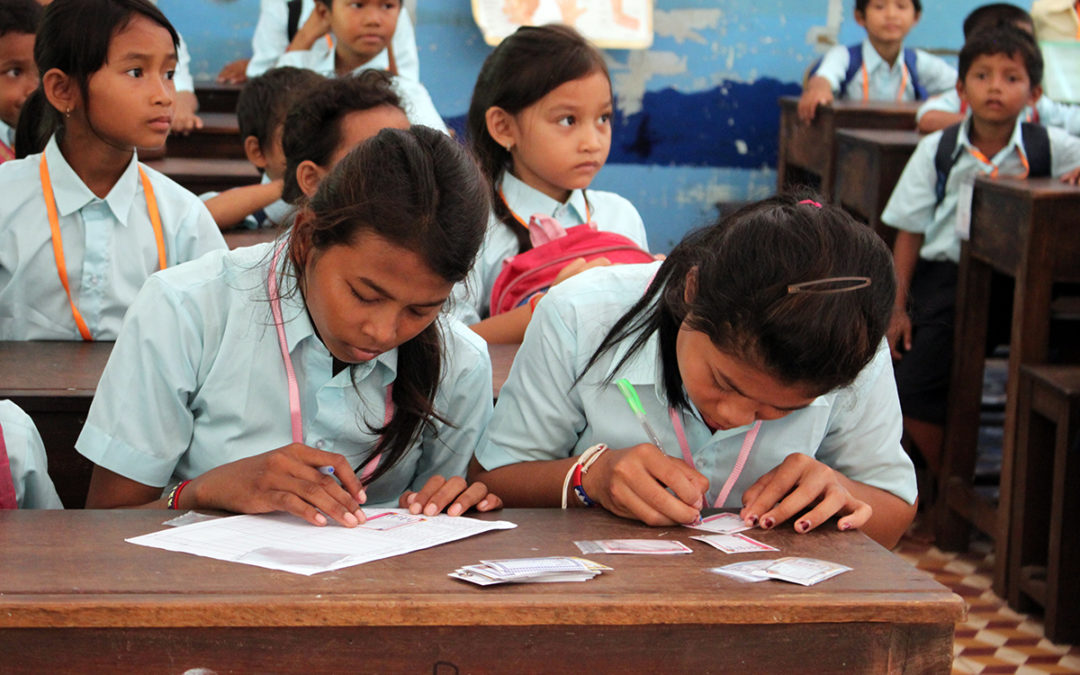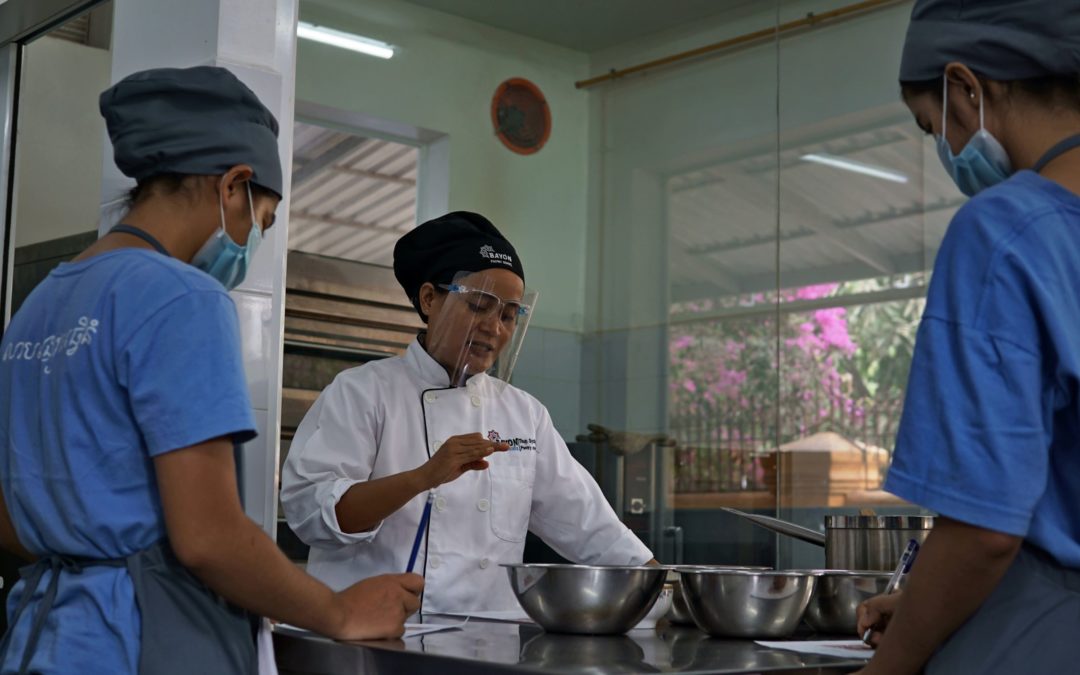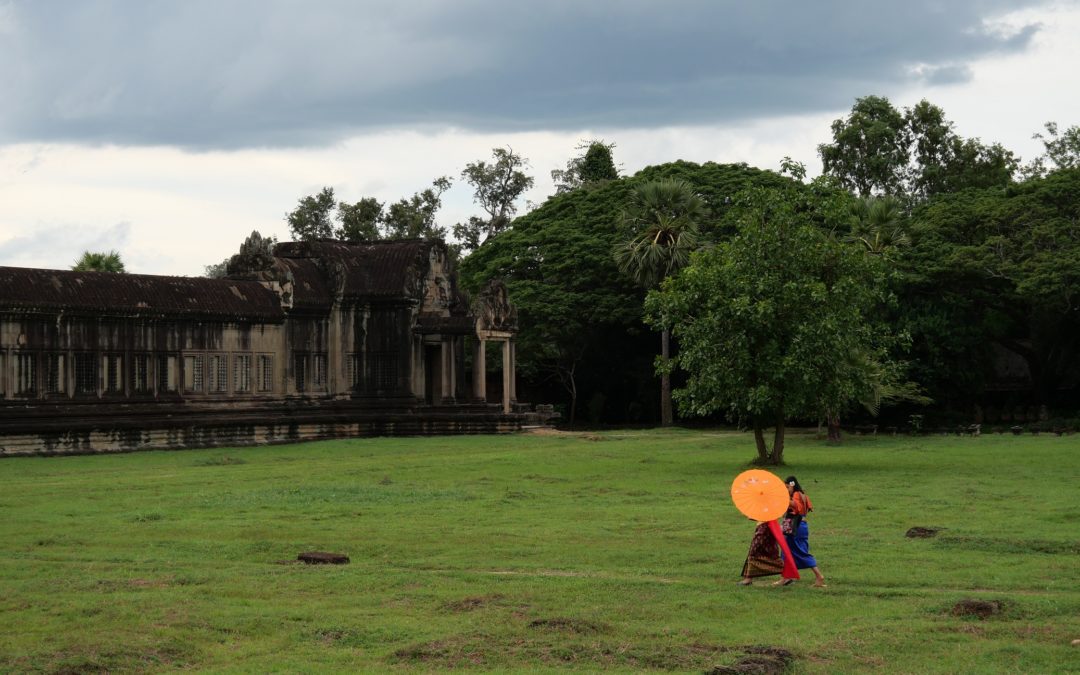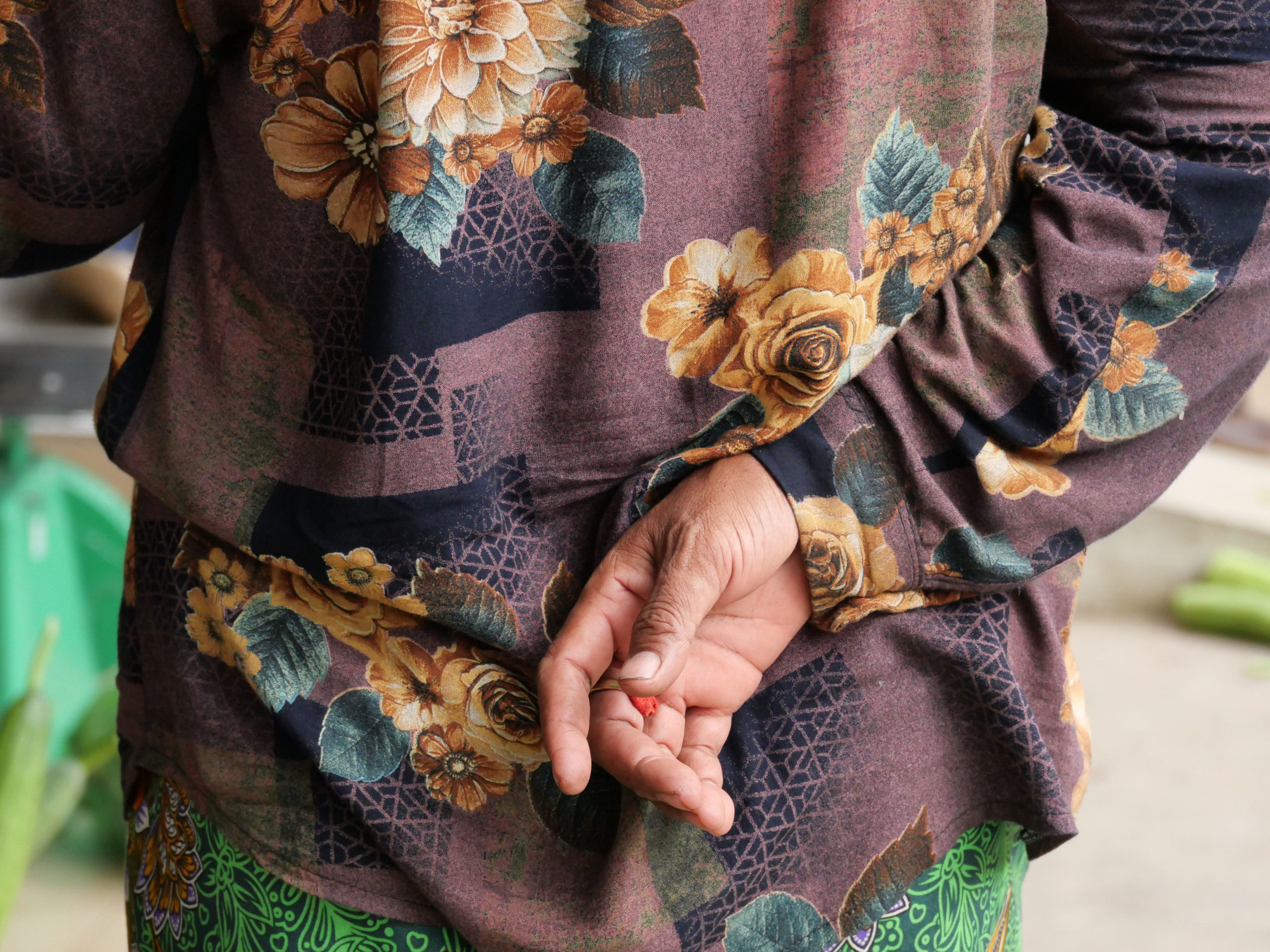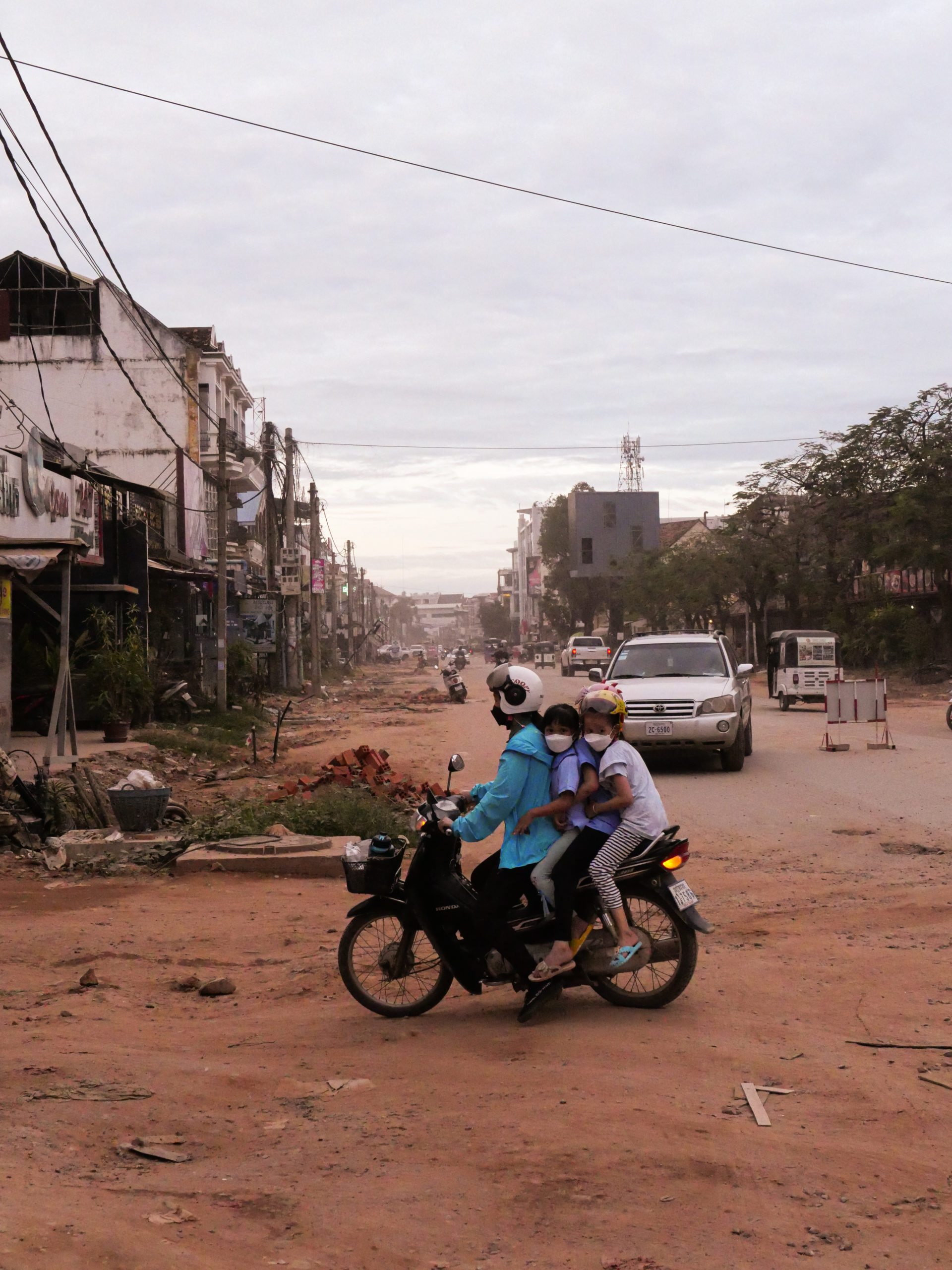
10 years: A decade of success for the Bayon Pastry and Bakery School
On December 14, 2024, the Bayon Pastry and Bakery School celebrated 10 years of commitment to young Cambodian women. `The event brought together students, teams, partners and personalities from the world of gastronomy for an exceptional evening in Siem Reap.
Since its creation in 2014, the School has offered free, comprehensive training in pastry-making and baking. In 10 years, more than 170 young women have been trained and graduated, gaining access to careers in prestigious establishments.
The anniversary was marked by :
- A buffet created by Fabrice Prochasson, Director of Creation and Innovation at Coup de Pâtes, Meilleur Ouvrier de France, Official Sponsor of the École de boulangerie et de patisserie, and Emma Prochasson, Head Pastry Chef.
- An exhibition retracing the inspiring careers of students from previous classes. Culinary demonstrations and a competition highlighting the students’ talent.
- The launch of a new pastry book, combining French and Cambodian flavors.
- The launch of a unique culinary work
The evening was also marked by the launch of the new edition of the celebrating creations blending French and Cambodian influences. Signed by Fabrice Prochasson and Sokhoeurn Morn, Director of the School, the book features emblematic recipes such as La Bûche Citron-Pistache, Les Macarons au Poivre de Kampot and Le Saint Honoré, all of which were available for tasting during the evening.
A huge thank you to our partners for their continued support and trust, which helps transform lives and create a better future.
